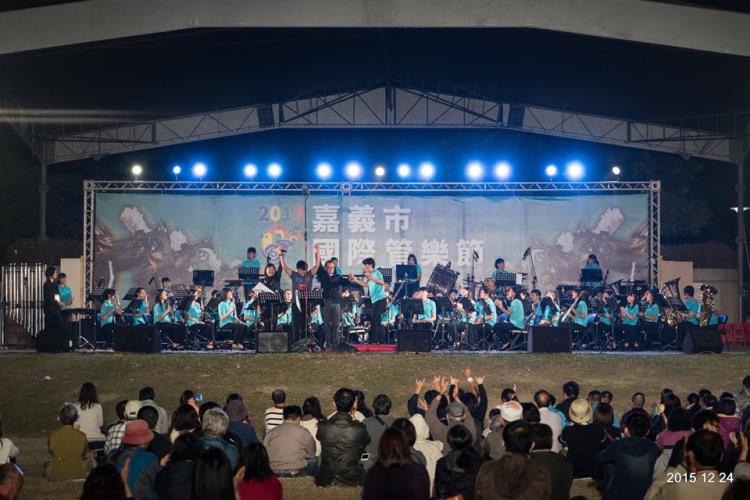A full time researcher in university and an amateur art commentator, Cheong obtained his master’s degree in Public Policy at Willy Brandt School of Public Policy at the University of Erfurt and is formerly a clarinettist of the Erfurt Philharmonic Orchestra in Germany. He loves classical music and now serves as conductor of the orchestra in Escola Choi Nong Chi Tai, by which he can connect art to everyday life. Cheong is also a book lover.

The Macao Band Directors Association organised the Taiwan Pre-tour Concert at the Macao Cultural Centre’s Small Auditorium as the rehearsal for the Macao Youth Symphonic Band’s participation in the Chiayi City International Band Festival. Repertoires included the English Folk Song Suite by Ralph Vaughan Williams, Night on Fire by John Mackey, Hymn to the Infinite Sky and Christmas Fantasia by Satoshi Yagisawa, and Concertino for Piano and Band by Yasuhide Ito. The attendance rate of the concert was over 90 percent, with parents and friends attending to show support. With the well-developed online resources, families can own a set of nice audio equipment by paying a very low price, and it does not seem meaningful to attend a concert. However, listening to music in a concert hall is not mere appreciation– it also involves social and religious functionality. US scholar Doctor Nancy Baym pointed out in a simple way that music creates connection between people in the social network; but that is only a weak tie which is easily breakable. The genuine strengthening and sublimation of relationships must rely on other communication channels. For example, people get to chat during the intermission of concerts in a concert hall, or attend simple gatherings after the concert– these are ways that music can bring people together and enhance their relationships. In addition to music, other means of communication such as drama, dance, painting and reading gatherings can also inspire people through art.
I was particularly impressed by Night on Fire by John Mackey at the performance. I was fortunate to have listened to the performance by the symphonic band of the University of Texas at Austin at the University of Macau, and had a few words with John Mackey at the gala dinner. I realised how strong his symphonic band was, and the sound quality and the exquisite arrangement between phrases were simply breathtaking. An outstanding composer and the guaranteed quality of the skillful band complement each other well. Night on Fire is a Grade Six repertoire (symphonic band repertoires are divided into grades one to six, six being the highest), which is not easy for amateur bands. However, the band gave its best and demonstrated the effort they put in. The only thing is that they do need to spend more time on the coordination among different parts. Percussions are too loud, which I believe is related to the size of the hall and its usage. For long, Macao lacks a professional music hall to show the public that sounds are auditory enjoyment. The projection of sounds includes linear projection, stage reflection, ceiling reflection and wall reflection. However, the lack of ideal sound reflection will greatly reduce the expressiveness of music, and sounds will be “dead” when it hits audiences’ ears. Different composers have their own standards on the calculation of reverb. For instance, Bach’s Toccata and Fugue in d Minor has the best auditory effect on four seconds.
The development of arts is helpful for the development of diversity in a city so as to reduce the contradiction among each other. The demonstration process of arts carries a sophisticated emotional projection, as well as rational understanding. Therefore, art is an essential way to perfect oneself. In addition, the engagement and understanding of arts at a young age have a decisive impact on children’s acceptance of new things in the future. US scholar professor Steven A. Melnick proved that the enhancement of children’s cognition through arts education not only relies on schools, but it also relies on the parents’ artistic ability. Parents’ sharing of understanding of arts with their children can effectively enhance children’s cognition. Parents’ responsibilities are bigger in inspiring and nurturing their kids in the so-called education process, and they should understand the significance of arts in an in-depth manner if they want their children to have higher ability.